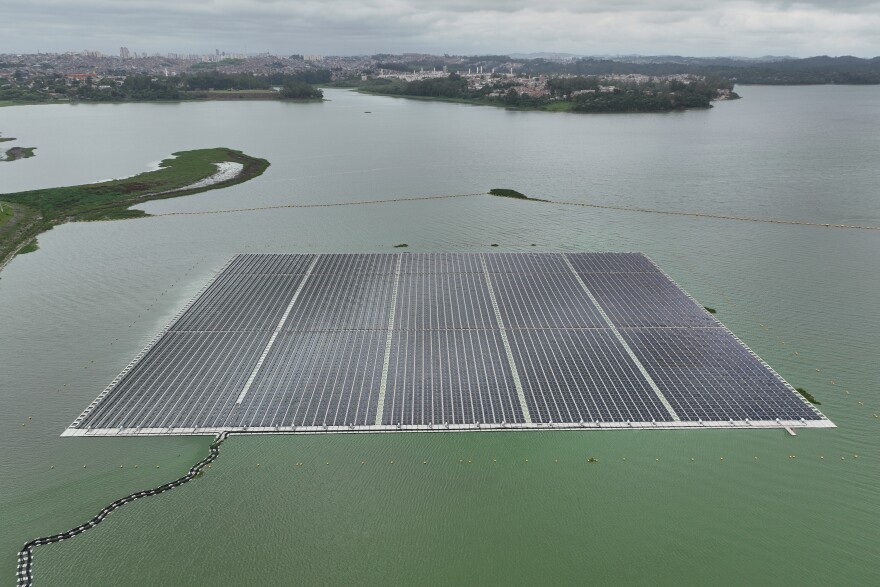Floating solar panels haven’t gained much traction in the United States, but they’re becoming more common in places like China and South Korea. A new study from Oregon State University suggests they could play a much larger role in the United States.
Researchers found floating solar panels could generate massive amounts of renewable energy. Adding floating solar panels to every federally controlled reservoir could generate enough power for 100 million homes, but the likely ecological effects varied widely by location.
OSU scientists modeled the effects of floating solar panels in 11 reservoirs across the country, including three in Oregon and one in Washington.
Ivan Arismendi, one of the study's authors, said the results were not as consistent as they initially expected.
“There were all these other patterns that reveal themselves once you run the models and also show how complex these patterns of circulation and reservoirs are, really depending on other conditions,” he said.
Variables such as wind and local climate affected how solar panels affected water temperature and dissolved oxygen levels. The solar panels can block wind from mixing the water, potentially leading to a warmer surface and cooler depths.
Arismendi said covering the surface of a lake with solar panels could cool down the water, improving habitat for fish like salmon. But it could also affect other species that rely on the warm water.
“That's the reason that we try to reinforce the need for site-specific impact evaluations once we consider putting these floating panels on a large scale," he said.
The team used modeling software developed by the U.S. Army Corps of Engineers to simulate physical changes in large streams and reservoirs.
Arismendi said he’d like to do a real-world study installing floating solar panels in a reservoir to compare the results with the model. But that could be difficult because of the costs of a floating solar farm and the challenge of finding the right location.



